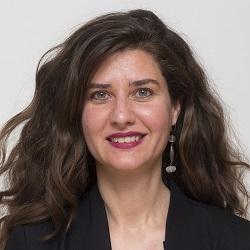European Economic
and Social Committee
Economia circular
A transição para a economia circular ocupa um lugar cimeiro na ordem do dia do CESE enquanto solução para lutar contra a crise climática e proteger o planeta. Constitui ao mesmo tempo uma excelente oportunidade para a sociedade civil, pois pode contribuir para:
- aumentar a competitividade da indústria europeia;
- promover o crescimento económico sustentável;
- criar novos postos de trabalho.
O modelo de produção e consumo linear, baseado no princípio «produz-utiliza-deita fora», que ainda domina a nossa economia não só resulta no desperdício de recursos como também prejudica a luta contra as alterações climáticas. Ao contrário da economia linear, a economia circular assenta numa conceção regenerativa e restauradora centrada na criação e retenção de valor económico, o que permite enfrentar os desafios ambientais a nível mundial, como as alterações climáticas, a perda de biodiversidade e a poluição, colhendo ao mesmo tempo benefícios económicos.
A boa notícia é que a transição para a economia circular já está em marcha no terreno. A nível local e regional, existem inúmeras iniciativas circulares concebidas e executadas pelas partes interessadas da sociedade civil, nomeadamente empresas, sindicatos, universidades e comunidades de conhecimento, organizações de juventude, ONG e outros grupos de interesses. A Europa tem a sua melhor oportunidade para acelerar a transição para a economia circular atuando como catalisador das soluções circulares das partes interessadas pertinentes e do seu papel de liderança neste processo.
Neste sentido, em 2017, o CESE e a Comissão Europeia criaram em conjunto a Plataforma Europeia das Partes Interessadas da Economia Circular, que visa reunir a comunidade da economia circular na Europa. Esta plataforma, dinamizada pelas partes interessadas, apoia a transição europeia para a economia circular promovendo o diálogo, partilhando conhecimentos e fazendo o intercâmbio de boas práticas entre os vários intervenientes.

